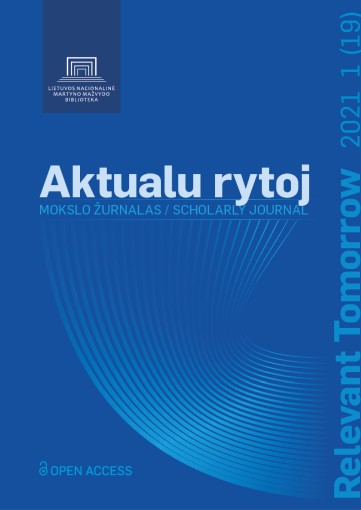Parlamentinių bibliotekų funkcijos ir valdžių padalijimo principas
DOI:
https://doi.org/10.51740/RT.1.19.6Reikšminiai žodžiai:
analitinė filosofija, politologijos formalizavimo pastangos, valdžių atskyrimas, informacijos adaptavimas, parlamentinė biblioteka, LietuvaSantrauka
Nors analitinė filosofija yra pasiūliusi legitimią atspirties platformą, ant kurios galima sukonstruoti tam tikrą savitų socialinių / politinių mokslų visumą, „valdžių padalijimo“ mechanizmas šioje konkrečioje metodologinėje paradigmoje dar nėra buvęs tyrinėtas. Straipsnyje teikiamas argumentas, kad diverguojanti stratifikacija, kuri yra neišvengiama laisvai sąveikančių racionalių veikėjų lauke, taip pat reiškia dėsningą monolitinės galios / jėgos skilimą. Toliau nagrinėjama, kokios pasekmės lydi šią stratifikaciją informacijos rūpybos ir informacijos adaptavimo / (pri) taikymo / tikslingumo atžvilgiais. Galiausiai šios analizės pagrindu pateikiamas parlamentinio informacinio aprūpinimo apibrėžimas, kuris aptariamas pragmatiniame kontekste. Parlamentinė biblioteka, teikdama savo paslaugas, rengdama kūrinius, turi kiek įmanoma nuosekliau stebėti viešąjį diskursą, idant laiduotų parlamentarizmo (šios sąvokos analitine reikšme) raišką.
Downloads
Atsisiuntimai
Publikuota
Kaip cituoti
Numeris
Skyrius
Licencija

Šis kūrinys yra platinamas pagal Kūrybinių bendrijų Priskyrimas 4.0 tarptautinę licenciją.









